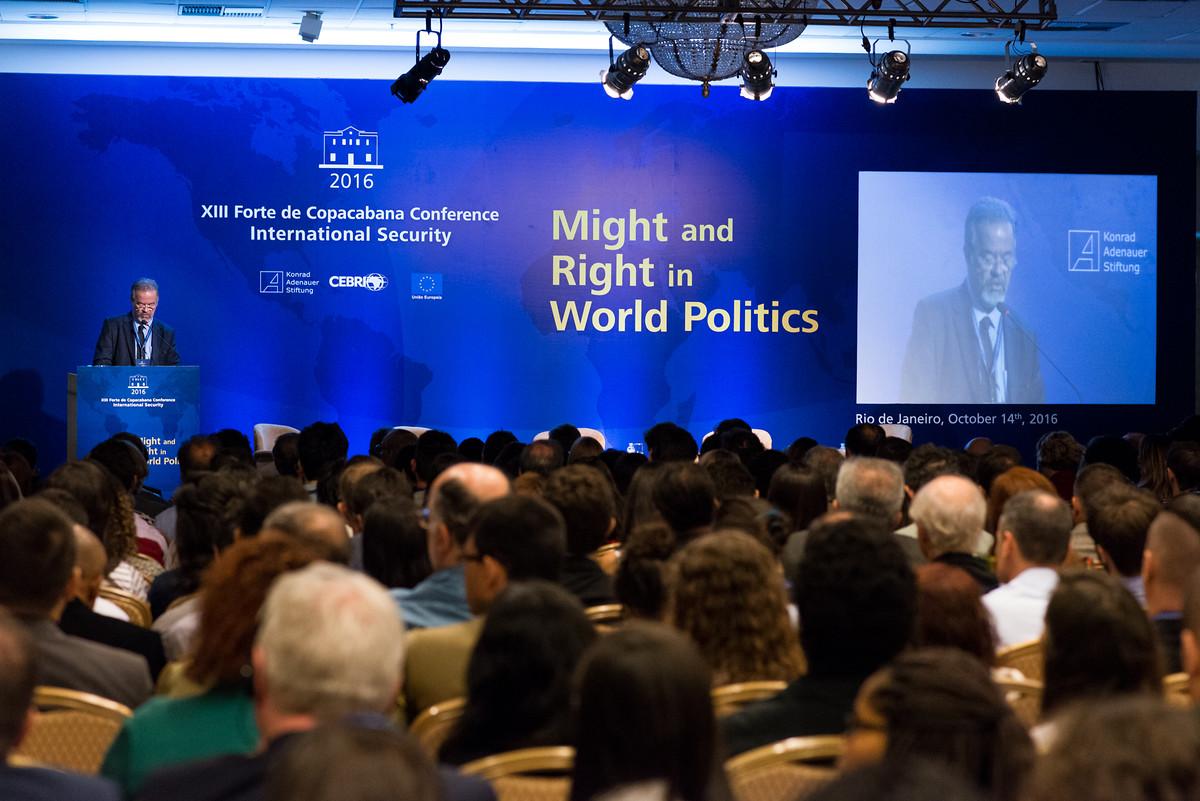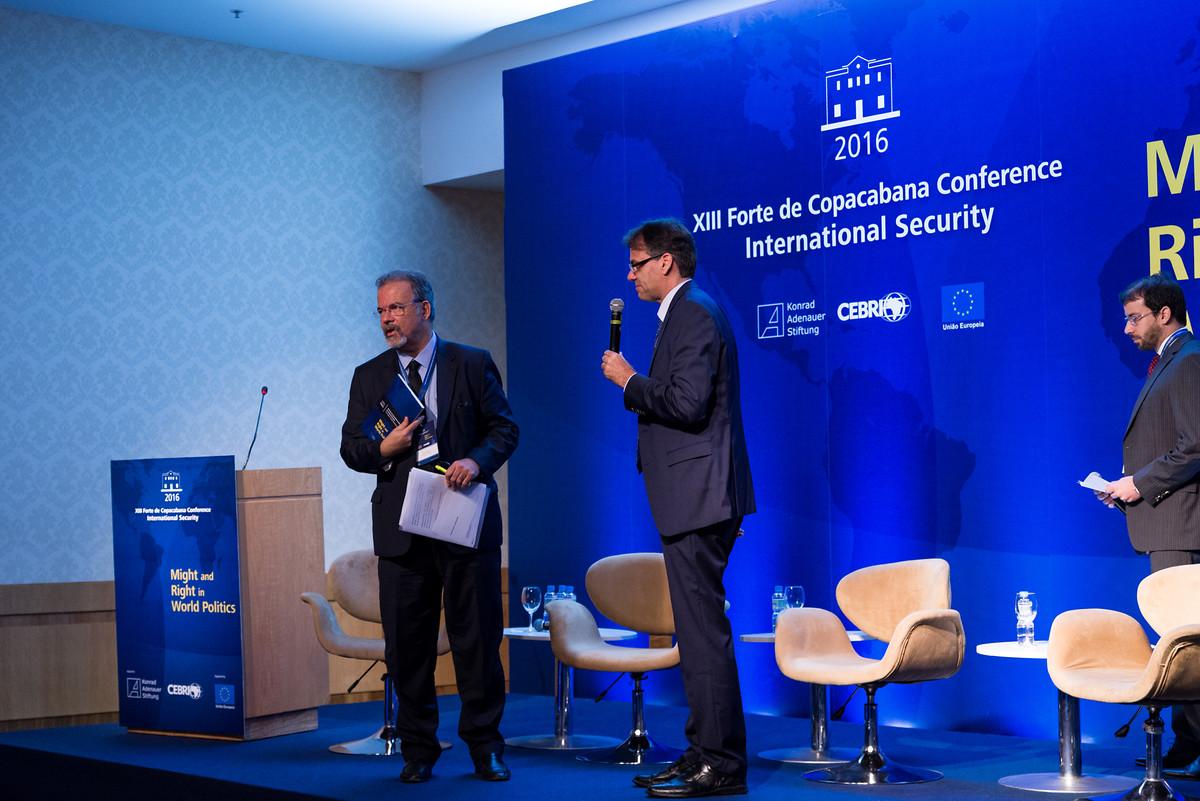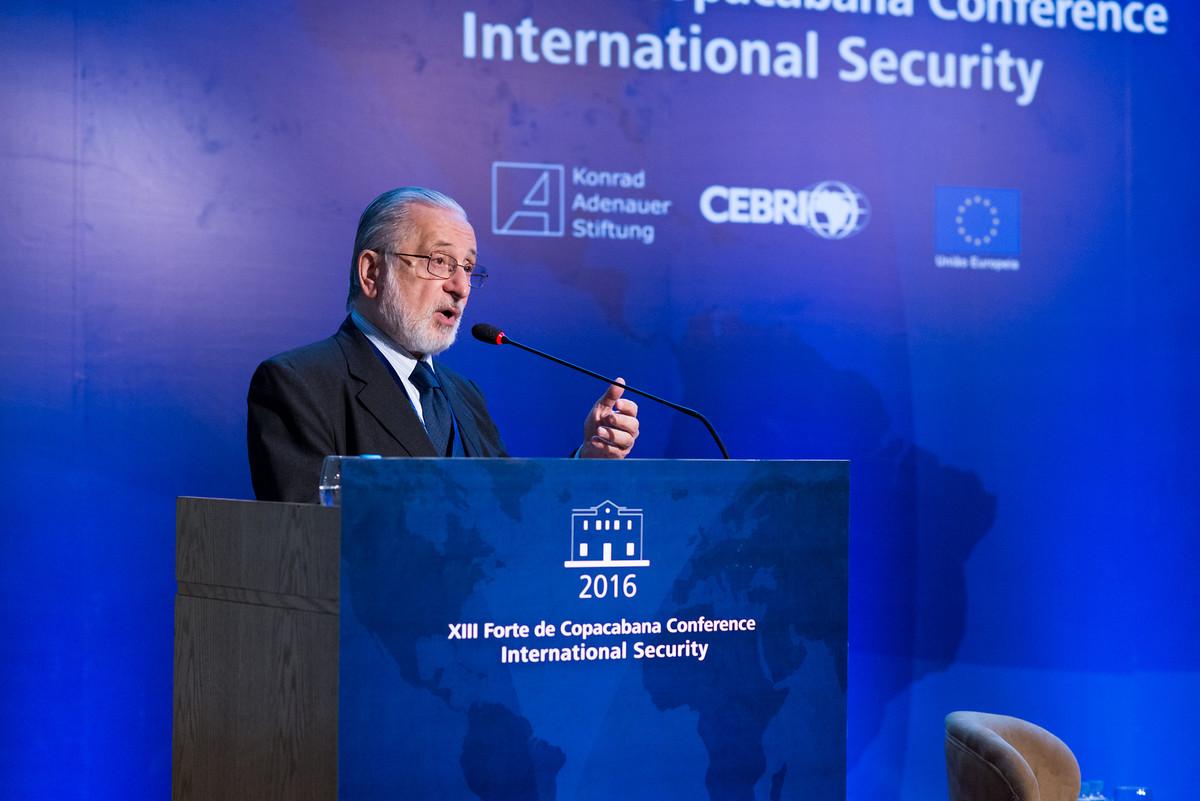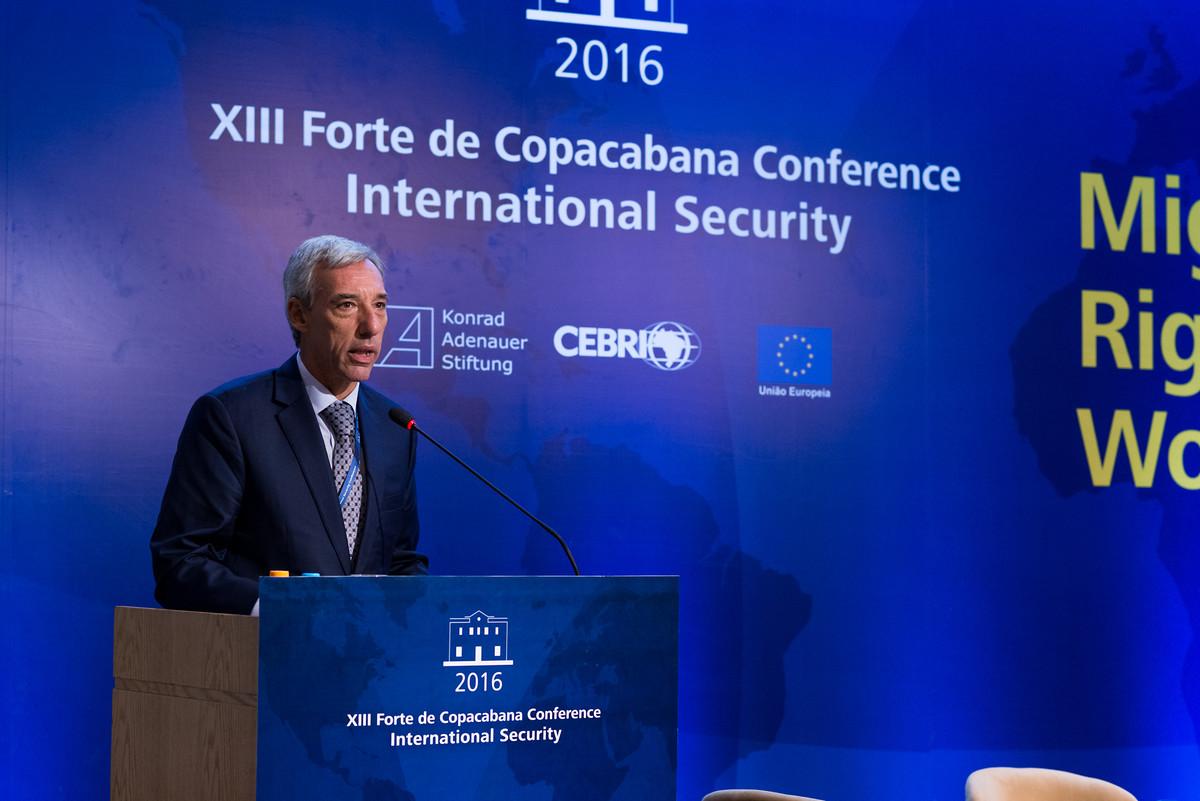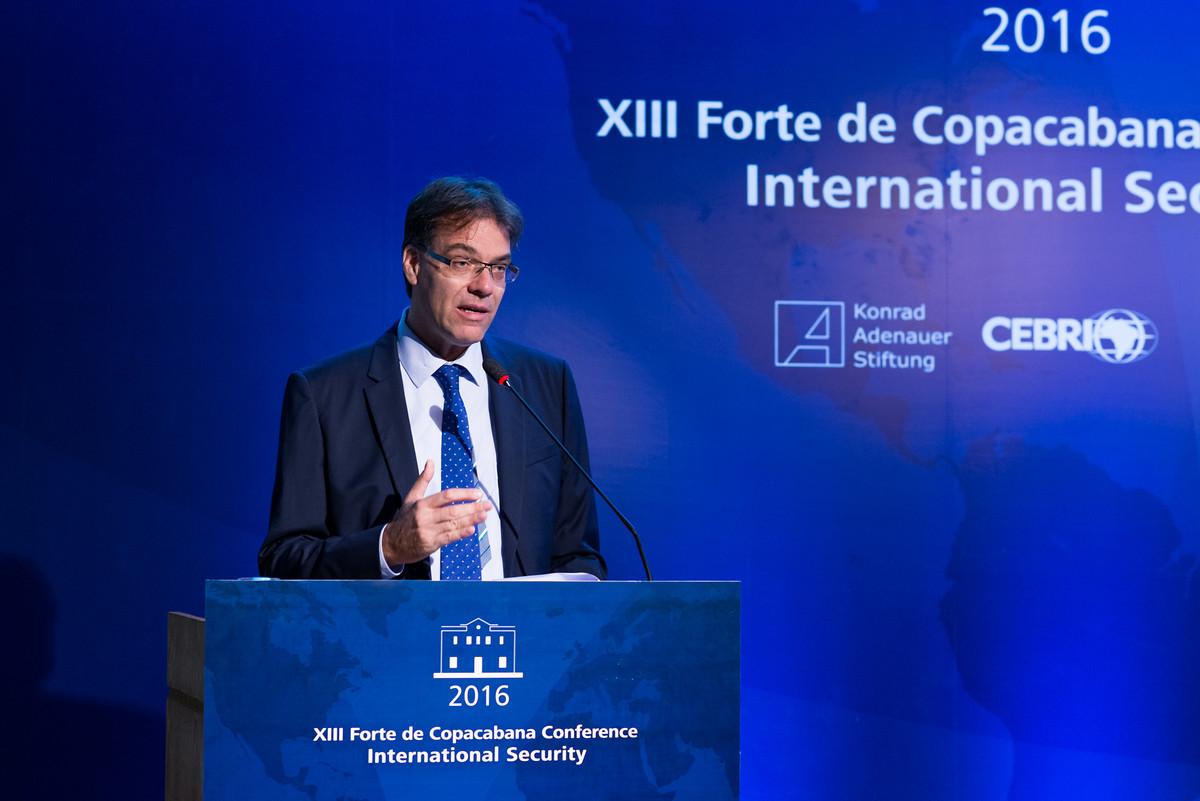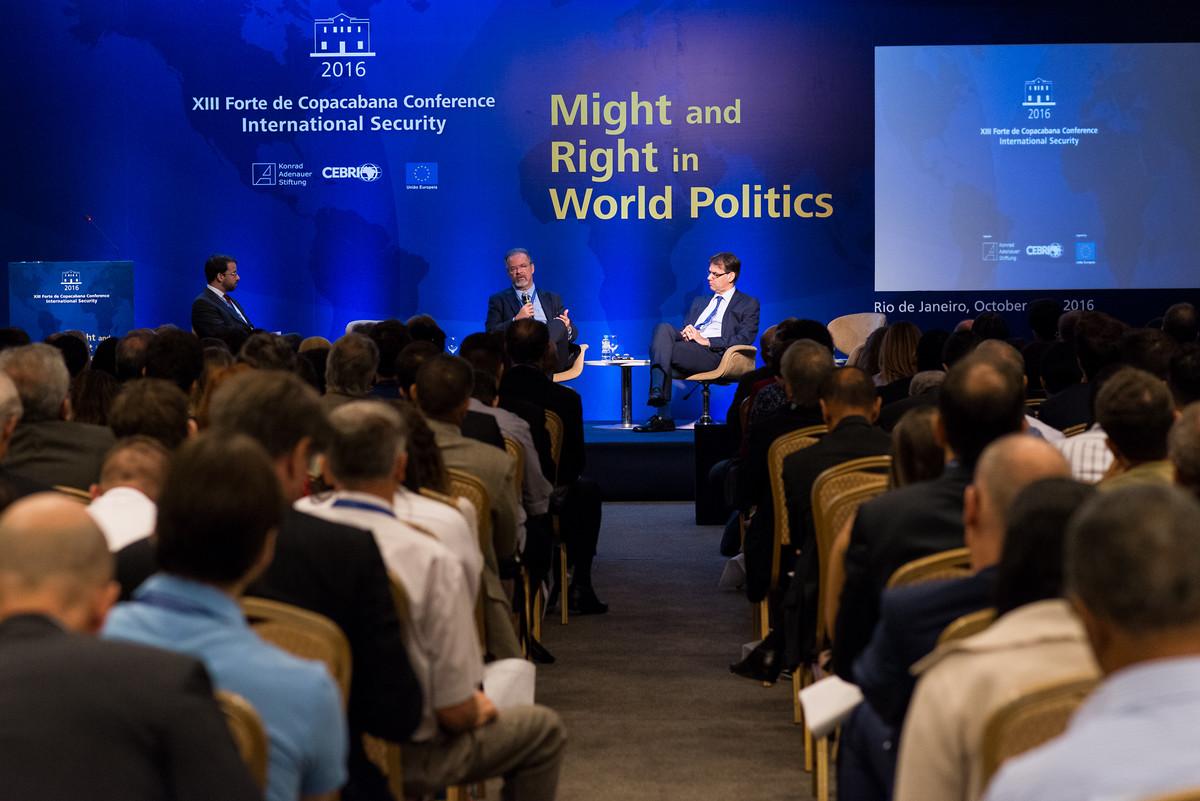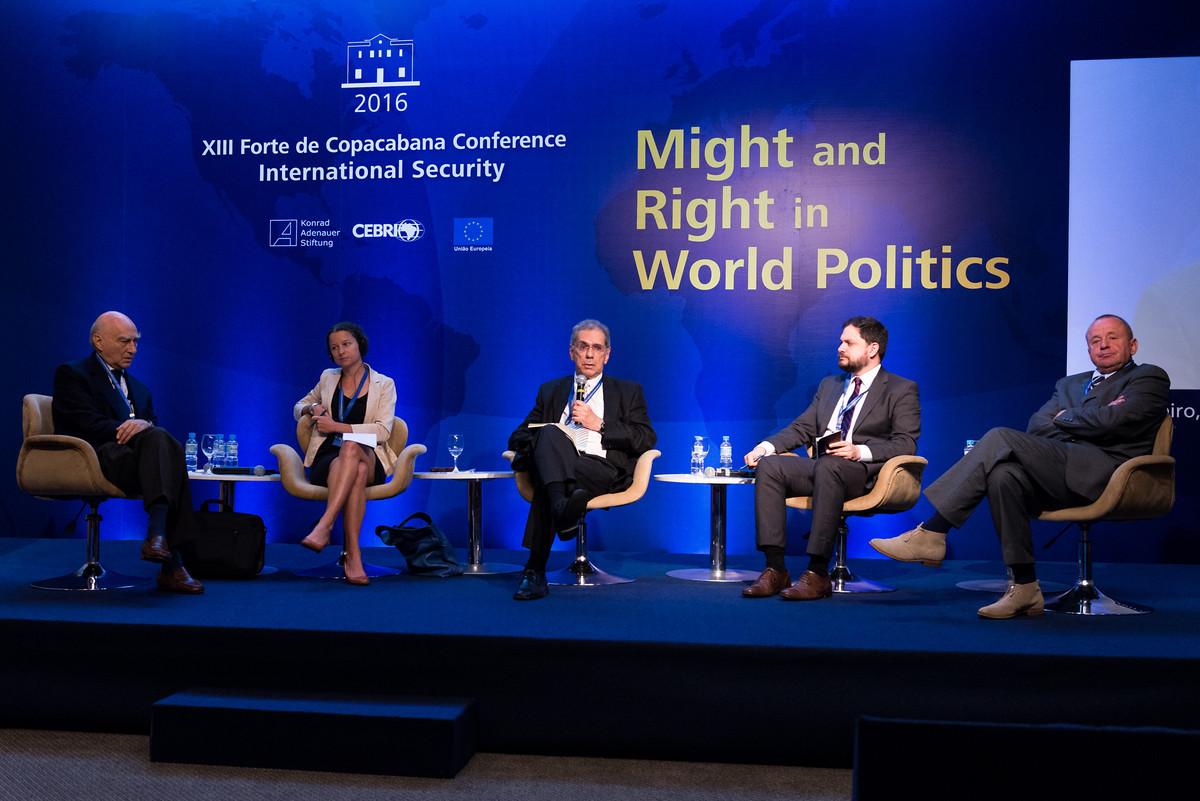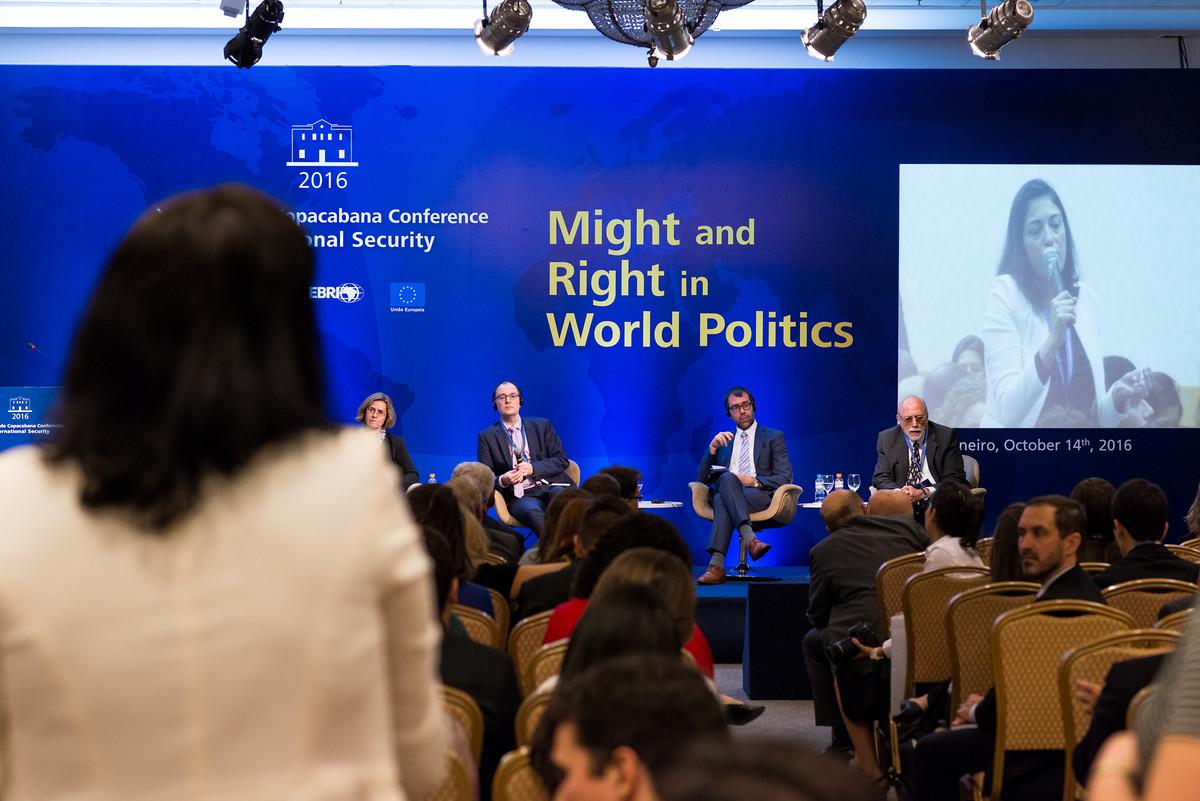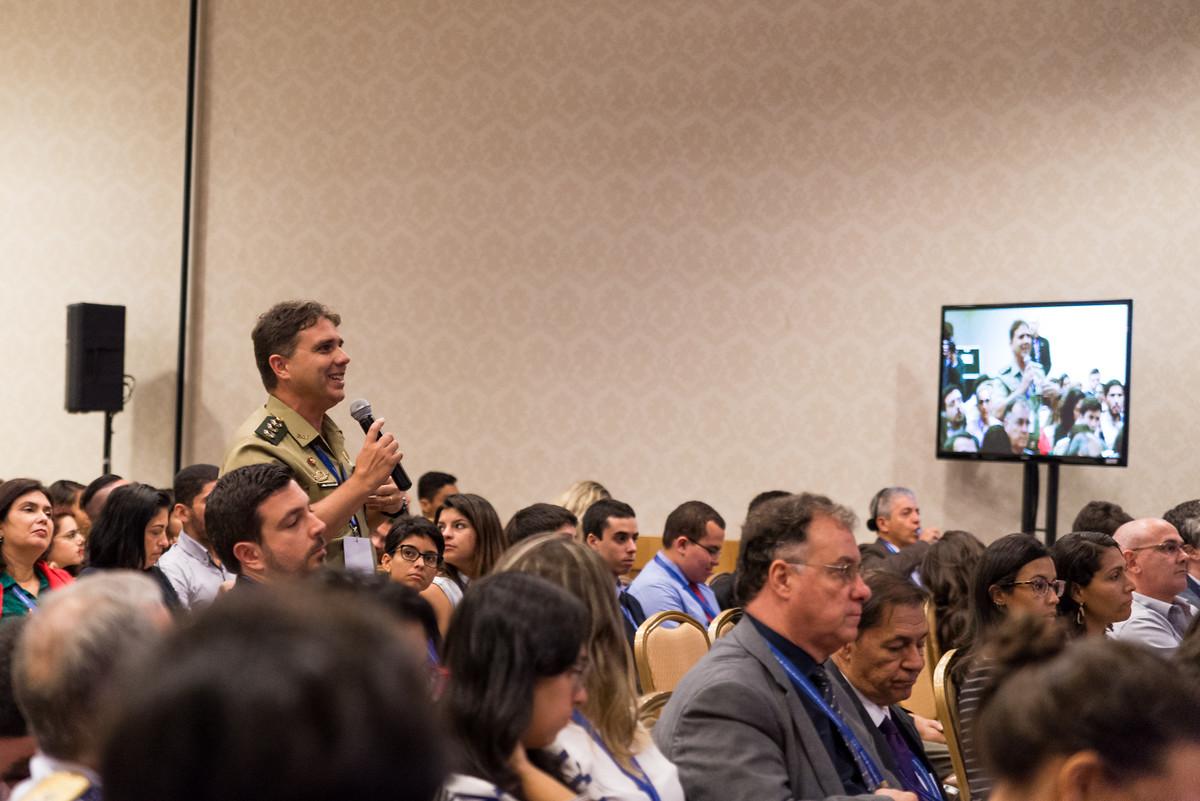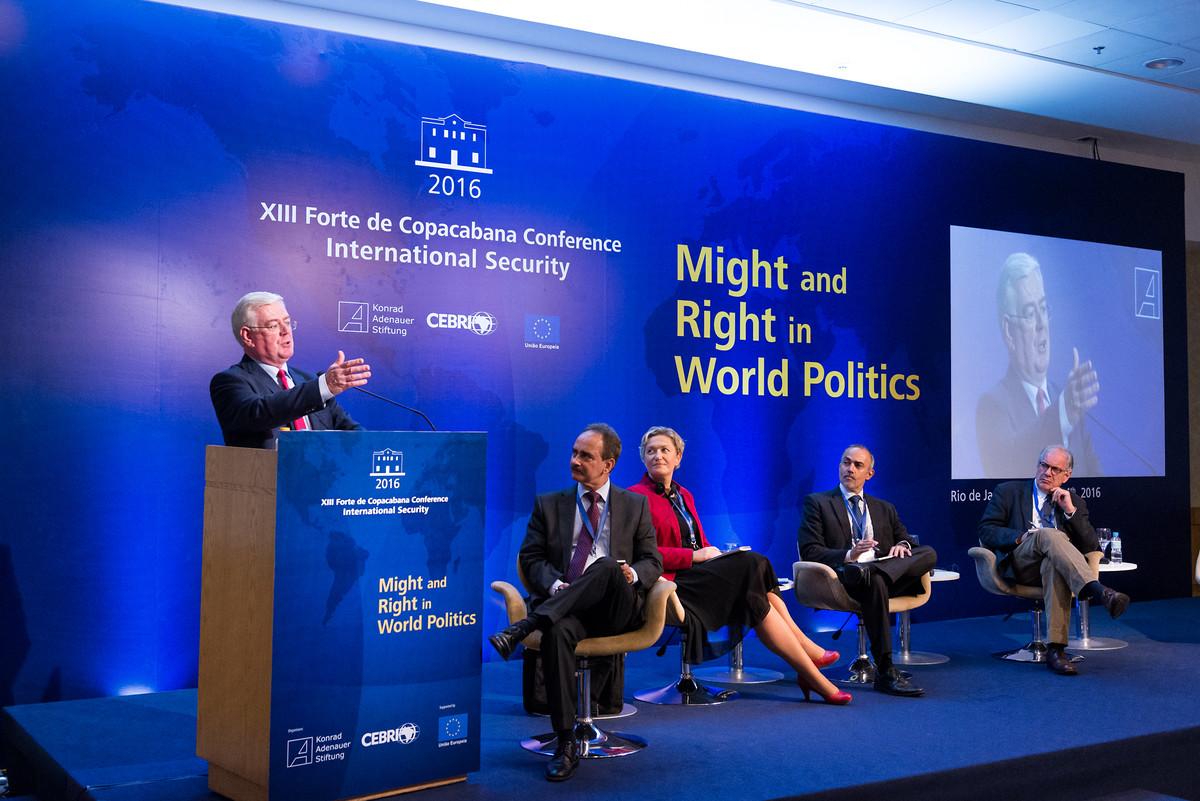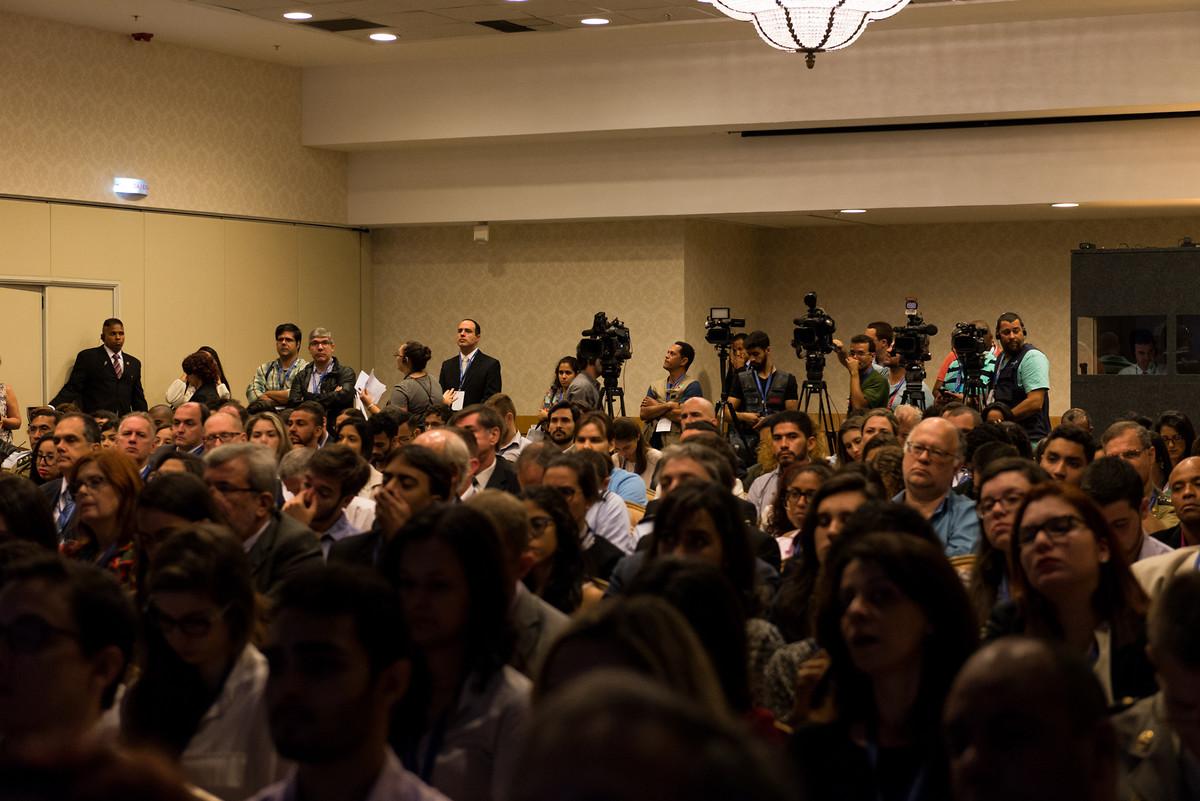Europe and Brazil between international law and the law of the strongest- on its way to becoming “smart powers”?
Event Reports
On the 14th of October, 2016, Rio completely put its emphasis on international security politics when it was hosting the International Security Conference “Forte de Copacabana”, organized by the Konrad-Adenauer Foundation (KAS) and the Brazilian Centre of International Relations (CEBRI), with support of the delegation of the European Union. More than 500 participants from politics, the military, diplomacy, press and economics attended the conference, which got its name from the military base Copacabana, formerly built with the purpose of protecting the Guanabara Bay and hosting the first “Forte de Copacabana” conference in 2004.
The theme of the 13th edition of the International Security Conference was “Might and Right in World politics” and hence devoted to the area of conflict between international law and the frequently much commented strengthening of geopolitics, so the law of the stronger in international relations. In face of growing and, looking at involved actors and phenomena, new crises on the international stage, the capability of solving the problems of the regarding national state is very limited. The more important it seems to a German political foundation such as the KAS is to win over Brazil, the 4th biggest democracy of the world and the biggest Latin American country, as partner. Furthermore, Germany and Brazil are not only bonded through a “Strategic Partnership” but also economically through many relations.
Basis for an even closer partnership is mutual understanding, and hence the necessity of international dialogue. However, during the Closed-Door workshop the day before the conference, which was open for everyone, even the Brazilian experts described the foreign affairs and defence policies of their country as not very clear and contradicting. Through this, Brazil manages to combine its pragmatism and the principle of Laissez-faire with worldwide global ambitions. This may have been caused by the fact of Brazil being far away from the focus of conflict in this world, being located in a continent that hasn’t seen any armed conflict between two states since 1941 (with a short rekindle in 1995).
That’s why it can also be seen as general upgrading of Brazilian-European relationships that Brazil’s minister of defence Raul Jungmann took the chance to hold his first official speech in office at the “Forte do Copacabana”. Jungmann, who already was a minister for rural development under president Fernando Henrique Cardoso (1996-2002), introduced the defence strategies of the new Brazilian government. This one describes the area of influence of Brazil to be South America, Antarctic, the South Atlantic and West Africa. Secondly, the minister of defence argued in favor of a stronger interdepartmental coordination: By listing the four core elements of the new defence strategy, “defence, democracy, diplomacy and development”, he emphasized the urgency of linking defence policy to rule of law, foreign-, economic- and social policies. He finished his speech by naming his big goal: turning Brazil into a “Smart Power”, hence linking defence capacities (“hard power”) to economic and cultural success (“soft power”).
Furthermore, the minister spread the word that the government is still considering to keep the military in action in the city of Rio de Janeiro. Originally, the measure was supposed to be temporarily limited to improve the security of the city during the Olympic summer games 2016, yet is Rio still facing many difficulties after the end of the games: Due to grave financial problems of the state of Rio, the payment of public employees, which also includes the police, is not assured. The retreatment of Rio’s secretary for public security, José Mariano Beltrame, gave reason for many to severely doubt the project of the “Unidades de Polícia Pacidicadora” (UPPs, pacifying police units), which is supposed to bring peace to favelas.
The speech of the minister of defence was followed by the discussion of three important issues of security by experts both from Brazil as well as Europe: The balance of might and right in international relations in times of new challenges such as terrorism; the collaboration of security and economic capacities; and the recreation of peace in post-conflict states. The EU special envoy for peace processes in Colombia, Eamon Gilmore, used the floor of the last panel debate to tell the audience about his experience. Being Irish he originates from a country that experienced innerstate paramilitary conflicts through the Irish Republican Army (IRA). After the peace agreement was rejected by the Colombian people about two weeks before the conference, Gilmore is searching for the reasons for that. In his opinion, the peace agreement has the potential to show to not only the Colombian population, but that of the whole world that “political ideas have to be exercised solely through peaceful measures”. Now, the agreement quickly has to be revised, before the window of opportunity from the UN and the FARC closes again.
Fukuyama’s prophecy that the model of free democracy has become accepted globally, leading to the “end of history“, forged by the euphoria of ending the cold war, has not proven to be accurate in these days. The reality is that peace and liberal democracy in face of new threats world wide are more and more getting endangered - and the traditional political defence equipment is more and more losing its utility. In this context, the XIII International Security Conference “Forte de Copacabana” showed contemporary challenges, but also possibilities of a solution for political security strategies in Europe and Brazil.
Topics
Provided by
Foundation Office Brazil
About this series
The Konrad-Adenauer-Stiftung, its educational institutions, centres and foreign offices, offer several thousand events on various subjects each year. We provide up to date and exclusive reports on selected conferences, events and symposia at www.kas.de. In addition to a summary of the contents, you can also find additional material such as pictures, speeches, videos or audio clips.



